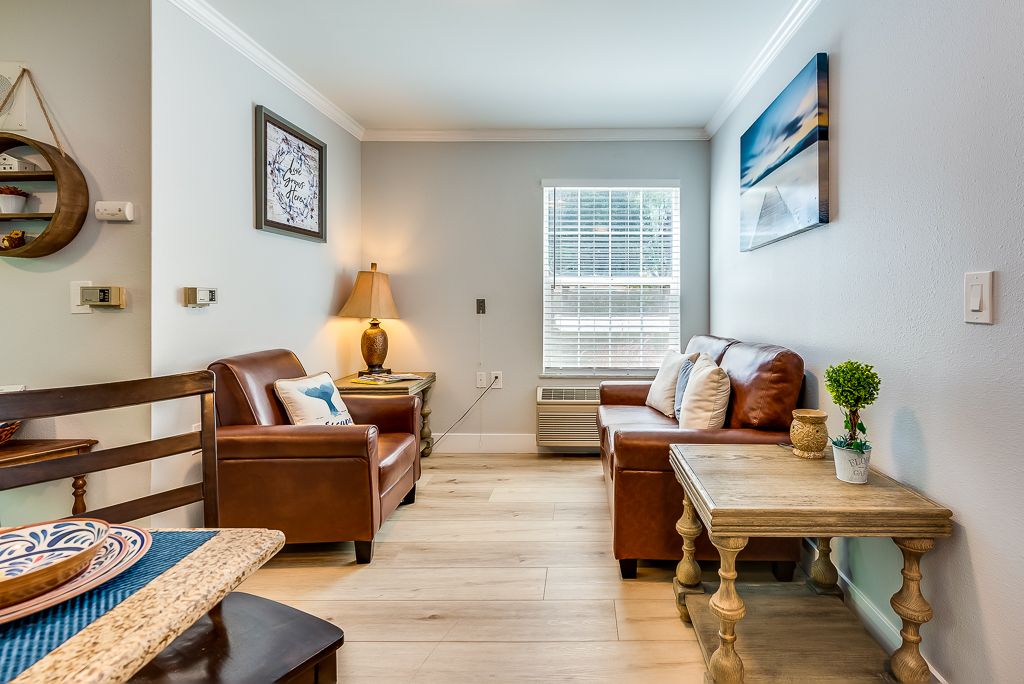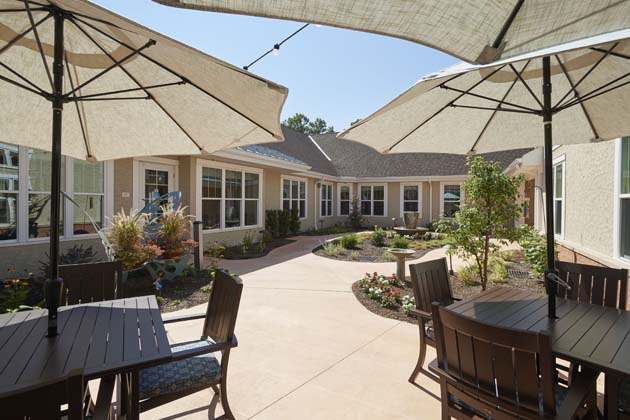Everything About Memory Care Services: Why Little Memory Treatment Houses Are a Terrific Choice
Memory care solutions play a crucial duty in supporting individuals with Alzheimer's and mental deterioration. Tiny memory care homes stand apart for their customized method and intimate setting. With reduced staff-to-resident ratios, these homes cultivate more powerful connections and tailored care. Locals gain from improved social interactions and a secure setting. As households explore alternatives, recognizing the special advantages of small memory treatment homes comes to be essential. What variables should be taken into consideration when picking the ideal home?
Comprehending Memory Care Solutions
While many might recognize with basic senior treatment options, recognizing memory care solutions is vital for family members dealing with the challenges of cognitive decline. Memory treatment specifically provides to people with conditions such as Alzheimer's condition and other kinds of dementia. These services provide an organized environment that focuses on enhancing the lifestyle for locals through specialized treatment and support.Memory treatment facilities are created to guarantee security and security, often featuring secured atmospheres to prevent roaming. Educated personnel are readily available around the clock to help with day-to-day activities, medication administration, and individual treatment. Additionally, memory care programs often include cognitive stimulation activities, customized to involve homeowners and advertise psychological well-being. Families can gain from comprehending these services, as they enable notified decisions regarding their loved ones' care, guaranteeing that their certain demands and choices are addressed in a compassionate and supportive manner.
The Benefits of Small Memory Treatment Homes
Small memory care homes offer distinct advantages that can significantly enhance the lifestyle for citizens with cognitive impairments. One significant benefit is the intimate environment, which allows for tailored communications amongst team and homeowners. This smaller sized setup cultivates significant partnerships, minimizing feelings of isolation and anxiety frequently experienced by people with memory issues.Additionally, the reduced staff-to-resident ratio in small memory care homes enables caretakers to supply more conscientious guidance and assistance. This approach not just boosts security however likewise promotes a complacency for the residents.Moreover, little memory care homes can adapt quickly to the distinct needs and choices of each local, permitting an extra homelike ambience. Such an environment can urge social involvement and involvement in tasks, ultimately enhancing the daily experiences of those coping with cognitive impairments.
Personalized Treatment Plans for Citizens
Individualized treatment plans are crucial in memory care homes, as they deal with the unique requirements and choices of each local. These strategies begin with detailed assessments performed by competent experts, that review cognitive abilities, case history, and personal rate of interests. This customized strategy assurances that care is not just effective yet additionally respectful of each person's self-respect and autonomy.Moreover, customized treatment strategies are flexible, enabling changes as residents' demands evolve gradually. This versatility cultivates a complacency and familiarity, which is crucial for individuals dealing with memory difficulties. Caretakers are trained to execute these plans regularly, offering support that aligns with the locals' routines and preferences.Ultimately, customized treatment strategies boost the lifestyle for citizens by advertising wellness, engagement, and self-reliance, making them an essential element of memory care services in small memory care homes.
Creating a Home-Like Setting
Producing a home-like setting is critical for fostering comfort and knowledge in memory care setups, as it considerably impacts homeowners' emotional health. Little memory care homes often focus on personalized touches, such as cozy shade palettes, family images, and acquainted furniture setups, which assist citizens really feel extra at simplicity. Including components reminiscent of a typical home, like comfy living rooms and communal locations, motivates a sense of belonging.Moreover, making use of natural light and outdoor spaces can improve the atmosphere, advertising leisure and harmony. Team member play a substantial role in preserving this setting by involving with locals in a caring fashion, treating them like family. Routine activities, such as cooking or horticulture, can likewise add to a home-like feeling, offering opportunities for locals to join purposeful experiences. Overall, creating a supporting setting supports cognitive function and emotional security, making it an important facet of memory treatment solutions.
Boosted Social Communication and Area
Improved social communication and area are important elements of memory care solutions. By fostering personalized social engagement and developing a family-like environment, these services promote meaningful links amongst homeowners. Team events and activities even more motivate involvement, assisting people really feel much more included and sustained.
Personalized Social Engagement
While social interaction is crucial for overall well-being, many individuals with memory disabilities usually have a hard time to involve meaningfully with others. Personalized social interaction in memory treatment homes addresses this difficulty by developing customized tasks that satisfy citizens' distinct rate of interests and capacities. By concentrating on individual choices, caretakers can promote connections that resonate deeply with each person. Tasks such as art therapy, songs sessions, and led discussions advertise cognitive excitement and psychological expression. Furthermore, small team settings urge friendship and permit more intimate communications, improving feelings of belonging. This strategy not only battles sensations of isolation but additionally empowers locals to preserve a feeling of identification, eventually adding to enhanced psychological health and wellness and lifestyle.
Family-like Environment
In a memory care setting, cultivating a family-like environment greatly improves social interaction and constructs a sense of area among locals. Smaller memory care homes commonly prioritize intimate settings, allowing citizens to create closer connections with one an additional and employee. This nurturing atmosphere advertises count on, which is essential for people with memory impairments. Residents are a lot more most likely to talk and share experiences, producing an encouraging network that alleviates sensations of isolation. The knowledge of shared rooms and regimens adds to a sense of belonging, better encouraging social interaction (personalized memory care). In such setups, psychological bonds thrive, bring about improved general health and a higher high quality of life for citizens as they navigate their daily experiences together
Group Activities and Occasions

Safety and Security Features in Tiny Houses
Numerous small homes made for memory treatment integrate necessary safety and security features to guarantee the well-being of residents. These homes frequently utilize secure entrance and departure indicate protect against straying, a typical worry amongst individuals with memory impairments. Furthermore, security systems and alarm system devices enhance monitoring, guaranteeing that staff can promptly react to any type of uncommon activities.Interior designs are customized for security, with lessened dangers such as sharp corners and clutter-free paths. Handrails and non-slip flooring are generally installed to decrease the risk of drops. Team member are learnt emergency protocols, guaranteeing they are prepared for different click here for more info situations.Moreover, individualized treatment plans may include evaluation of individual safety demands, supplying tailored remedies for every local. On the whole, these safety and security and security functions develop a nurturing atmosphere where citizens can thrive while maintaining their dignity and self-reliance.
How to Choose the Right Memory Care Home
How can families ensure they choose the most appropriate memory care home for their liked ones? The decision needs careful factor to consider of several elements. Families should assess the facility's staff certifications and training, guaranteeing that caretakers are experienced in handling memory-related problems. Next off, it's essential to evaluate the home's setting, focusing on security functions and whether it fosters a sense of area and belonging. Visiting the center can provide understanding right into daily tasks and the social environment, which are crucial for mental excitement and emotional health. In addition, families ought to make inquiries regarding the treatment plans provided, guaranteeing they are customized to individual demands. Considering the home's place and availability for family members check outs can contribute to a smoother change. By dealing with these aspects, family members can make an educated choice that prioritizes their liked one's convenience and lifestyle in a memory care setting.
Frequently Asked Inquiries
What Certifications Should Staff Members in Memory Treatment Homes Have?
Team member in memory treatment homes need to possess relevant certifications, experience in dementia care, strong communication abilities, and concern. Recurring training in behavioral monitoring and healing treatments boosts their capability to sustain homeowners effectively.
Exactly How Do Memory Care Solutions Differ From Standard Assisted Living?
Memory care solutions focus particularly on individuals with memory impairments, supplying specific support and organized atmospheres. In comparison, standard assisted living supplies general support with daily tasks, doing not have the tailored strategy needed for those with cognitive difficulties.
What Types of Activities Are Used in Memory Care Residences?
Memory care homes normally offer a selection of tasks created to involve citizens. Common choices consist of art therapy, songs sessions, cognitive video games, exercises, horticulture, and gatherings, all targeted at boosting wellness and cognitive function.
Can Locals Bring Their Own Belongings to Memory Care Homes?
Locals can generally bring their own valuables to memory care homes, enabling them to individualize their home - personalized memory care. This method assists create a familiar atmosphere, advertising convenience and a feeling of identification for the people

How Are Relative Included in the Treatment Process?
Member of the family play an important duty in the treatment process, typically taking part in decision-making, participating in treatment meetings, and supplying emotional support. Their involvement fosters a collective atmosphere, boosting the homeowner's total health and quality of life. While many might be acquainted with basic senior treatment options, recognizing memory care solutions is essential for family members encountering the difficulties of cognitive decline. These solutions supply an organized environment that concentrates get redirected here on boosting the top quality of life for citizens through specialized care and support.Memory treatment facilities are developed to guarantee safety and security and safety, commonly featuring protected atmospheres to stop roaming. Customized care plans are important in memory care homes, as they cater to the distinct needs and preferences of each resident. Staff participants in memory treatment homes need to have relevant certifications, experience in mental deterioration care, solid communication abilities, and empathy. Memory treatment solutions focus especially on individuals with memory problems, offering customized assistance and organized settings.